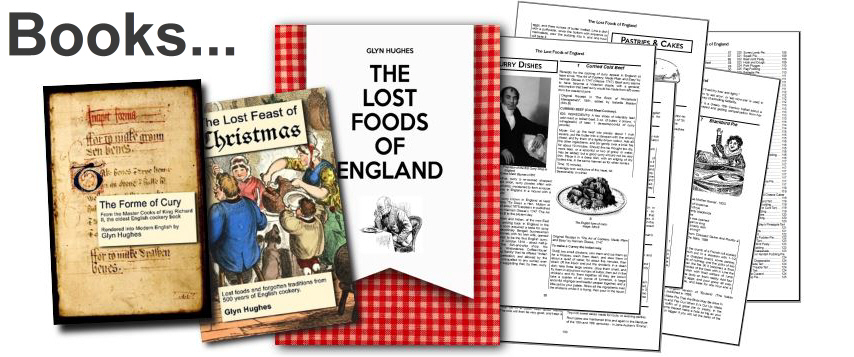

|
 (or Sparagus or sparrow-Grass, sparagi, perage, sperach, sparage, asparage, sparagus, sparagras, sparrowgrass in older texts) Asparagus is the vernal shoot of the plant Asparagus officinalis. It is known as a food in England, as ‘sparagi’, at least since references in Saxon herbals of the 10th Century (OED) and is given as ‘Sperage‘ in William Turner’s ‘The names of herbes‘ of 1548. French White and English Green Asparagus While English asparagus is exactly the same plant as that grown on the Mainland, it is generally grown differently and produces a different vegetable product. Following the customary English ‘simplest is best’ practice in all the culinary arts, the shoots are allowed to grow entirely naturally, open to the sunlight, producing an all-green spear, or to only partially earth them up giving a green-and-white effect. On the mainland, asparagus shoots are often earthed-up, or otherwise protected from sunlight, to produce a white stem. ‘Carving the first asparagus of the season‘, Punch, c1878 The asparagus season officially starts on St George’s Day and festivals are held in several asparagus growing areas. George, thought to be a Turkish Christian of the 4Cent, is widely venerated by both Christians and Muslims in many lands including Bulgaria, England, Georgia, Portugal, Russia, Romania, Aragon, Brazil, Iraq, Catalonia. Saint George’s Day is normally 23 April, however, the Church of England dictates that no saints should be celebrated between Palm Sunday and the Sunday after Easter Day, so, in some years, St George’s day is deferred. Asparagus Festival at the Fleece Inn, Bretforton, Nr Evesham, Worcestershire thefleeceinn.co.uk Asparagus causes the diner’s urine to become scented with sulphur compounds like methyl mercaptan, but only about 20% of people are capable of smelling it. One of those was evidently the French writer Marcel Proust, who wrote of how the plant “…transforms my chamber-pot into a flask of perfume.”  Original Receipt in ‘The Accomplisht Cook‘ by Robert May, 1660 (Robert May 1660); Original Receipt in ‘The Accomplisht Cook‘ by Robert May, 1660 (Robert May 1660);Buttered Sparagus. Take two hundred of sparagus, scrape the roots clean and wash them, then take the heads of an hundred and lay them even, bind them hard up into a bundle, and so likewise of the other hundred; then have a large skillet of fair water, when it boils put them in, and boil them up quick with some salt; being boil’d drain them, and serve them with beaten butter and salt about the dish, or butter and vinegar. English Asparagus – ‘Purple Passion’ Image: www.unwins.co.uk Dishes mentioning asparagus include: Beeton’s Asparagus Soup Bracken Tops Brussels Sprouts Good King Henry, or Mercury, or Pap-Wort Herb Soup Hop Buds Jubilee Chicken Lord Nelson’s Cutlets Masked Eggs Pea Soup Pickled Asparagus Savoury Herbs Savoury Toast Seakale Sweetbreads  |
|
MORE FROM Foods of England... Cookbooks ● Diary ● Index ● Magic Menu ● Random ● Really English? ● Timeline ● Donate ● Royalty ● English Service ● Food Map of England ● Lost Foods ● Accompaniments ● Biscuits ● Breads ● Cakes and Scones ● Cheeses ● Classic Meals ● Curry Dishes ● Dairy ● Drinks ● Egg Dishes ● Fish ● Fruit ● Fruits & Vegetables ● Game & Offal ● Meat & Meat Dishes ● Pastries and Pies ● Pot Meals ● Poultry ● Preserves & Jams ● Puddings & Sweets ● Sauces and Spicery ● Sausages ● Scones ● Soups ● Sweets and Toffee ● About ... ● Bookshop ● Email: [email protected] COPYRIGHT and ALL RIGHTS RESERVED: © Glyn Hughes 2022 BUILT WITH WHIMBERRY |